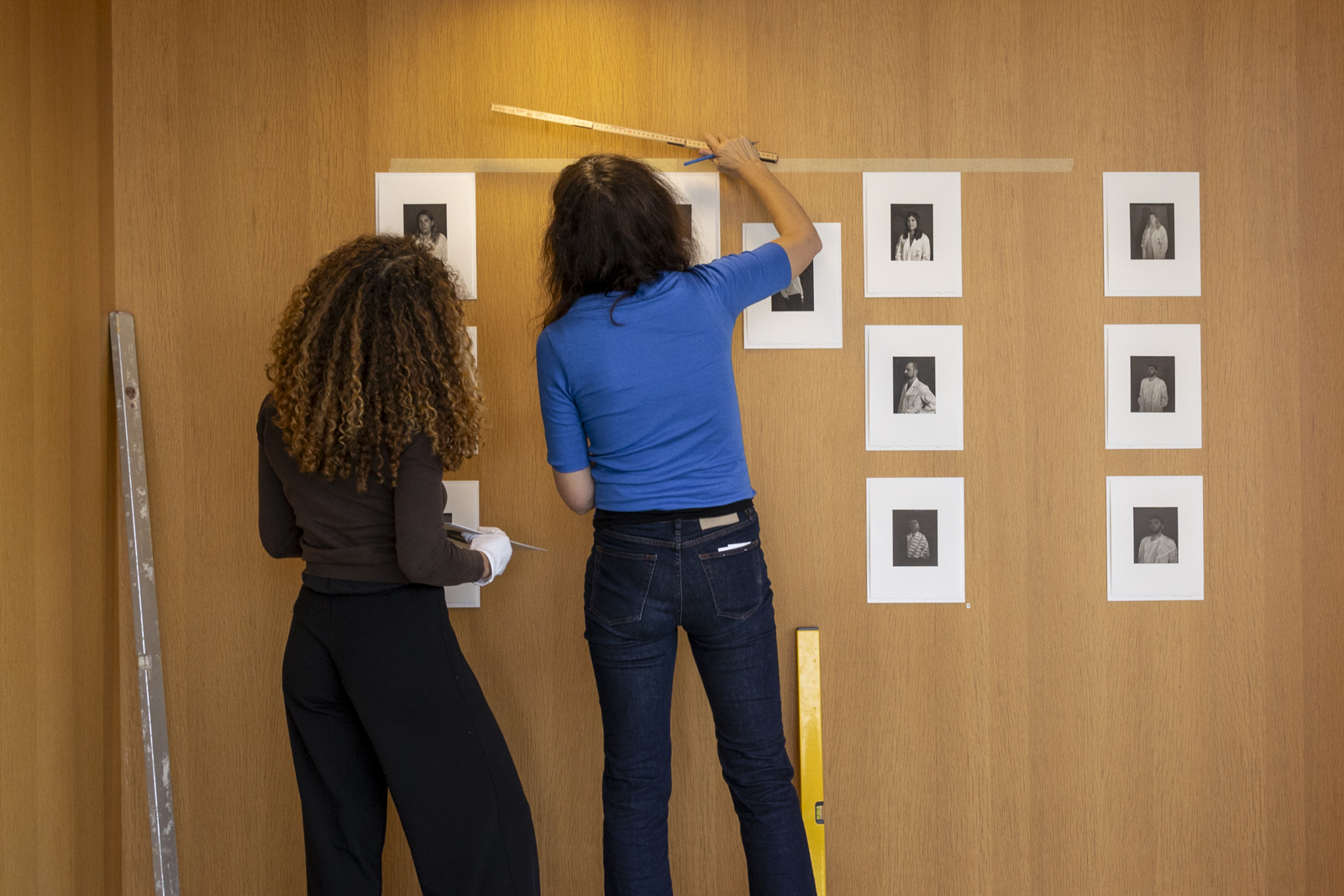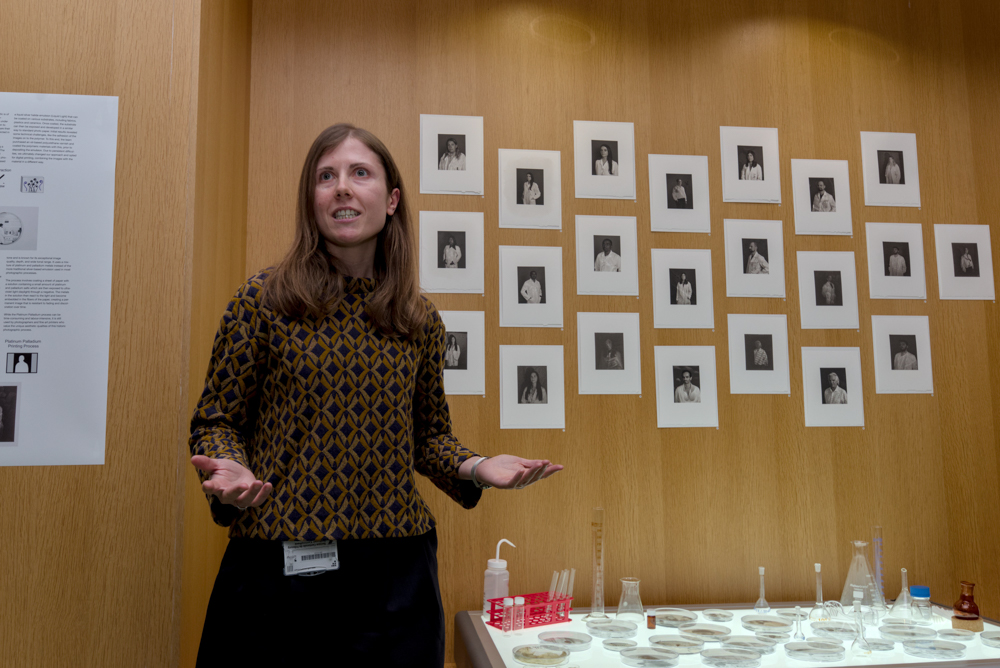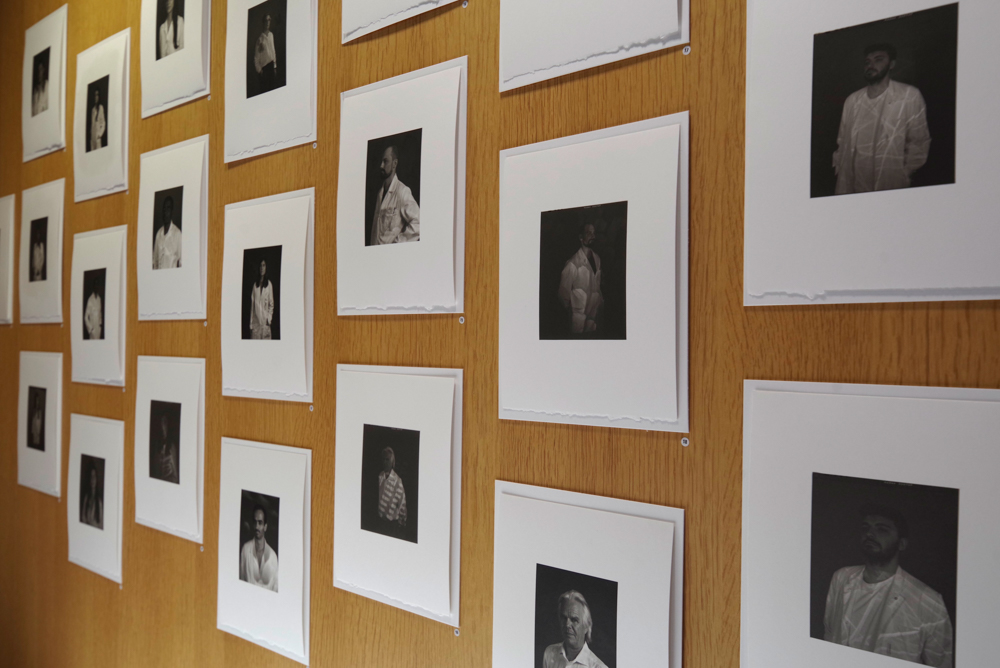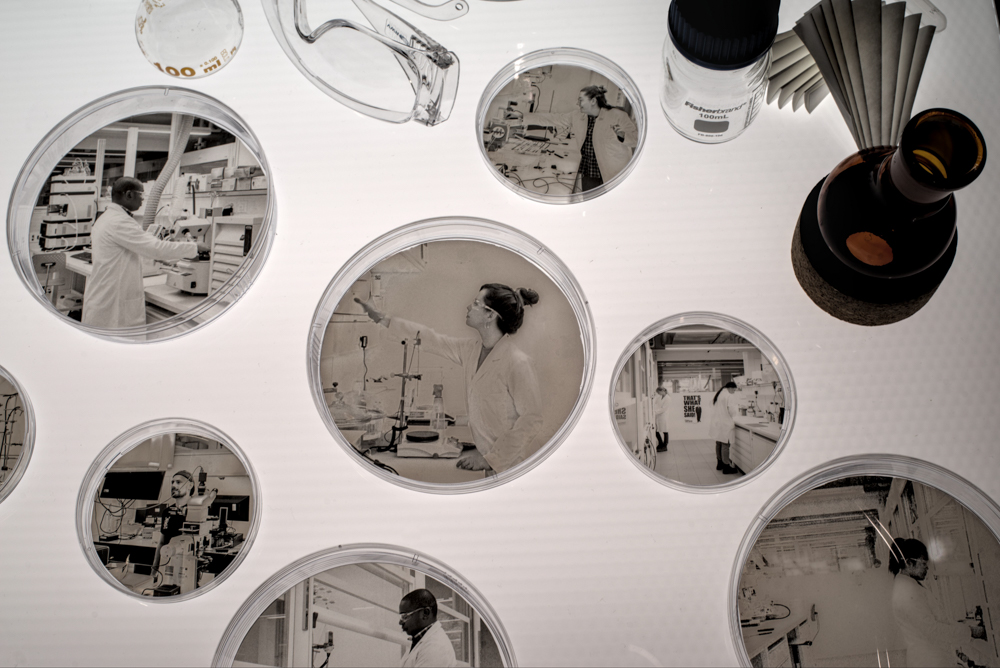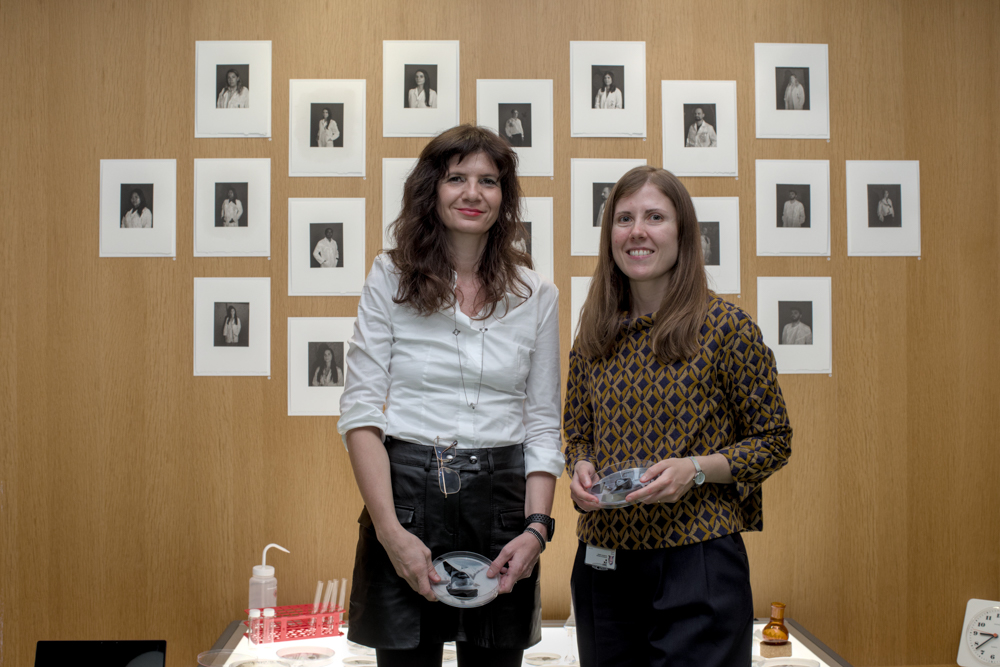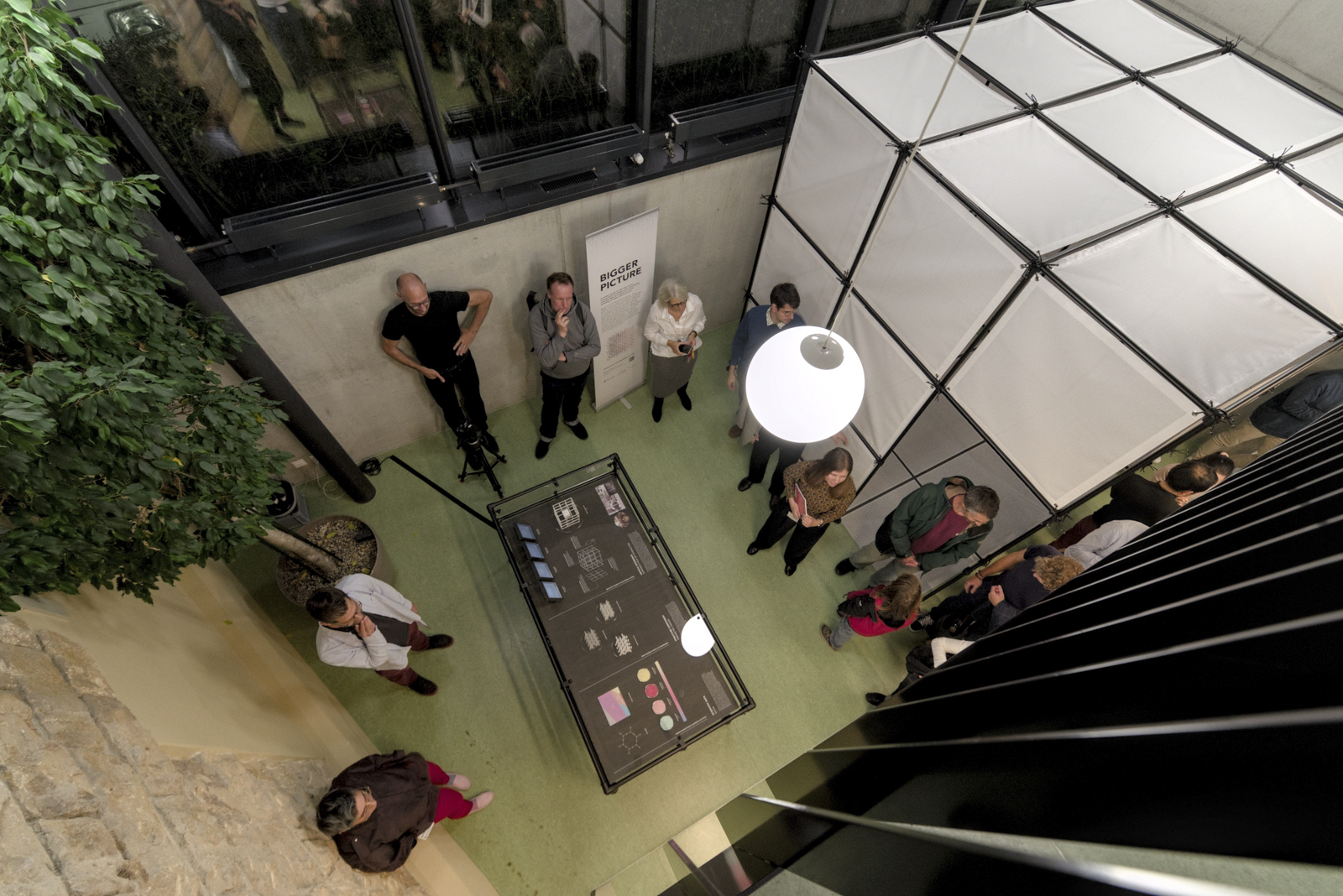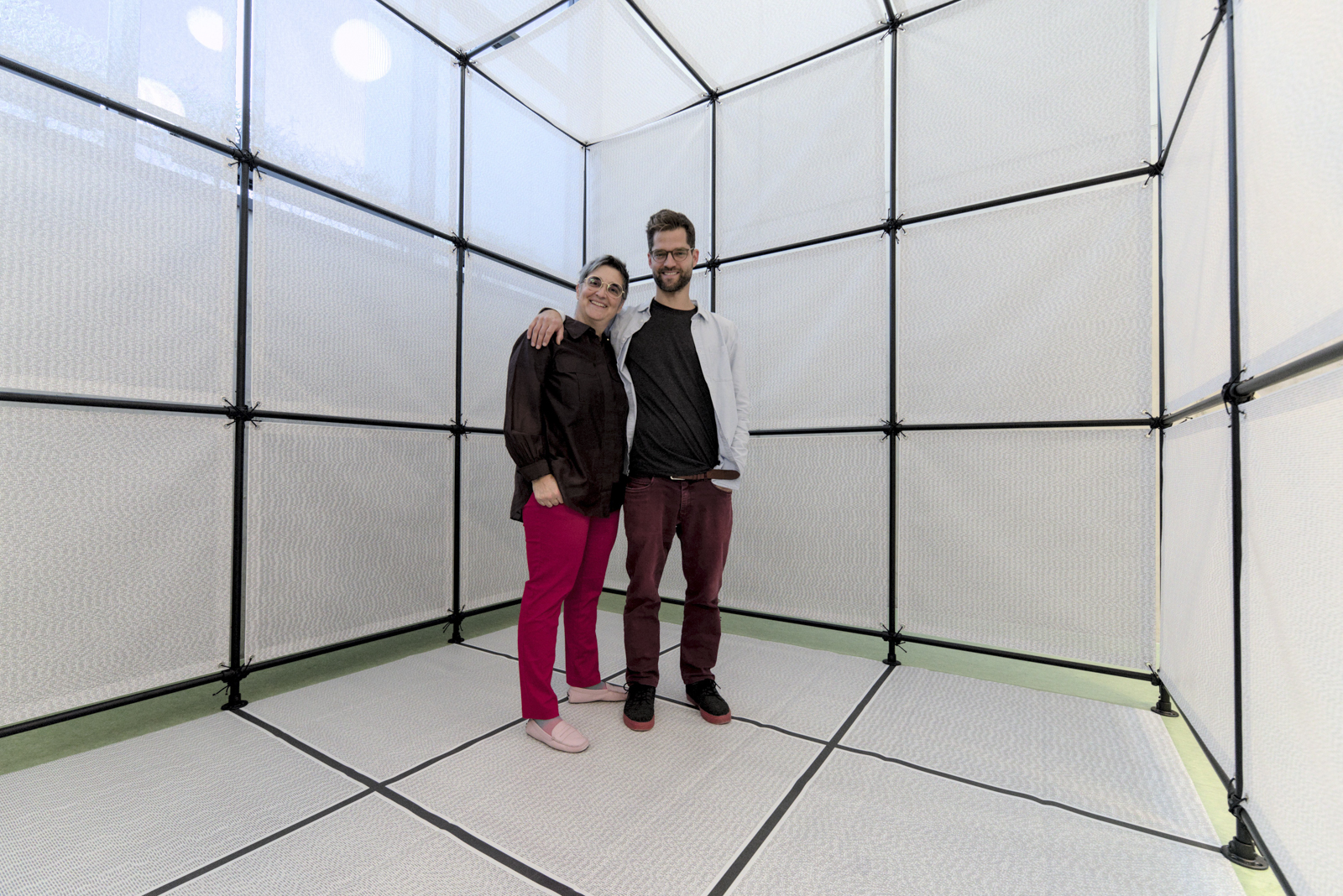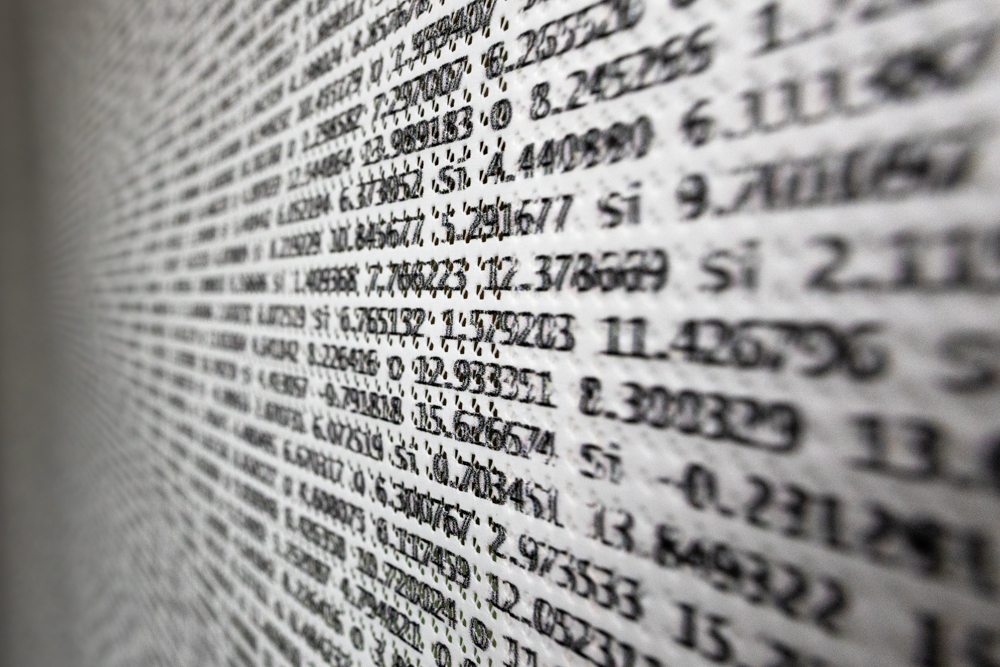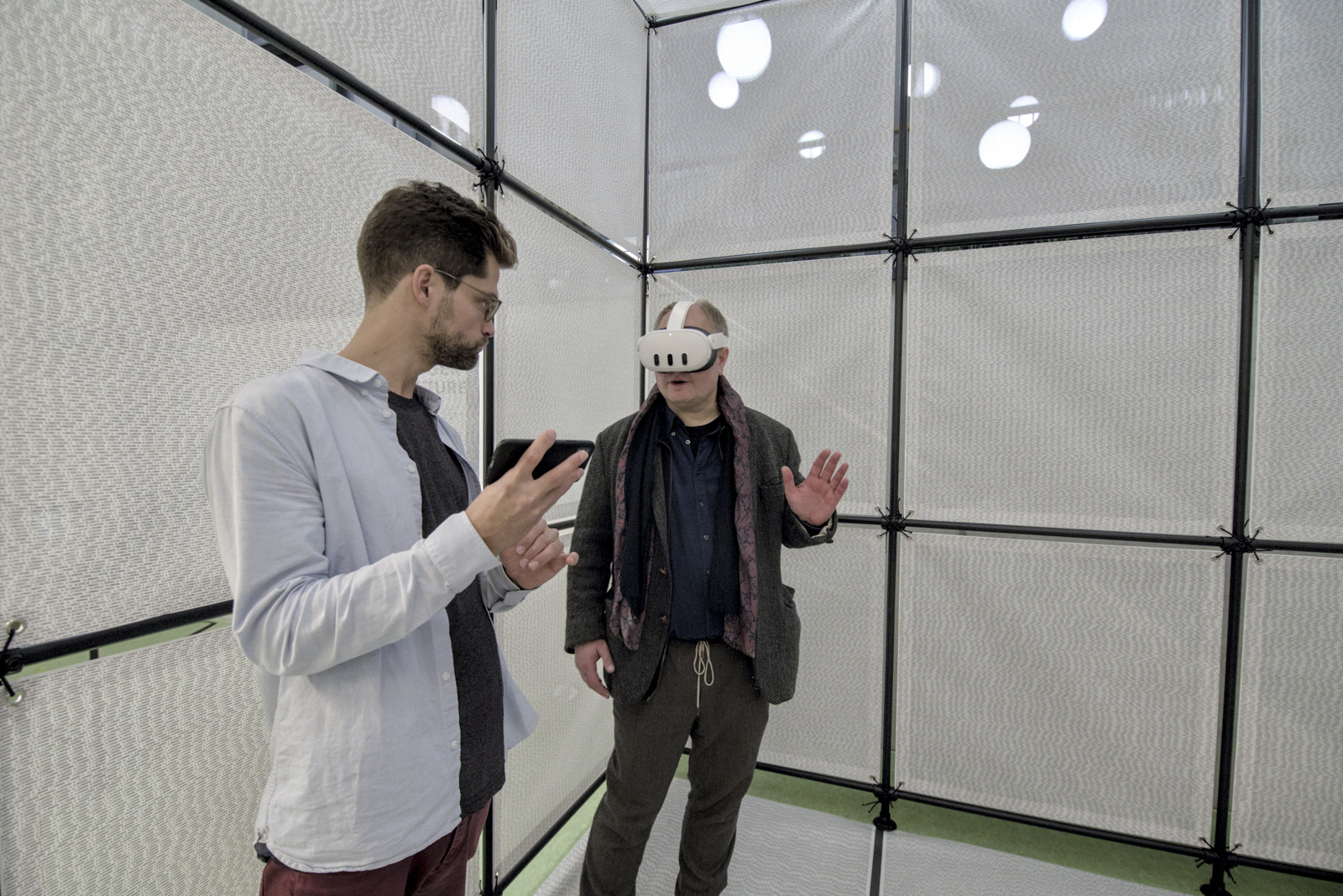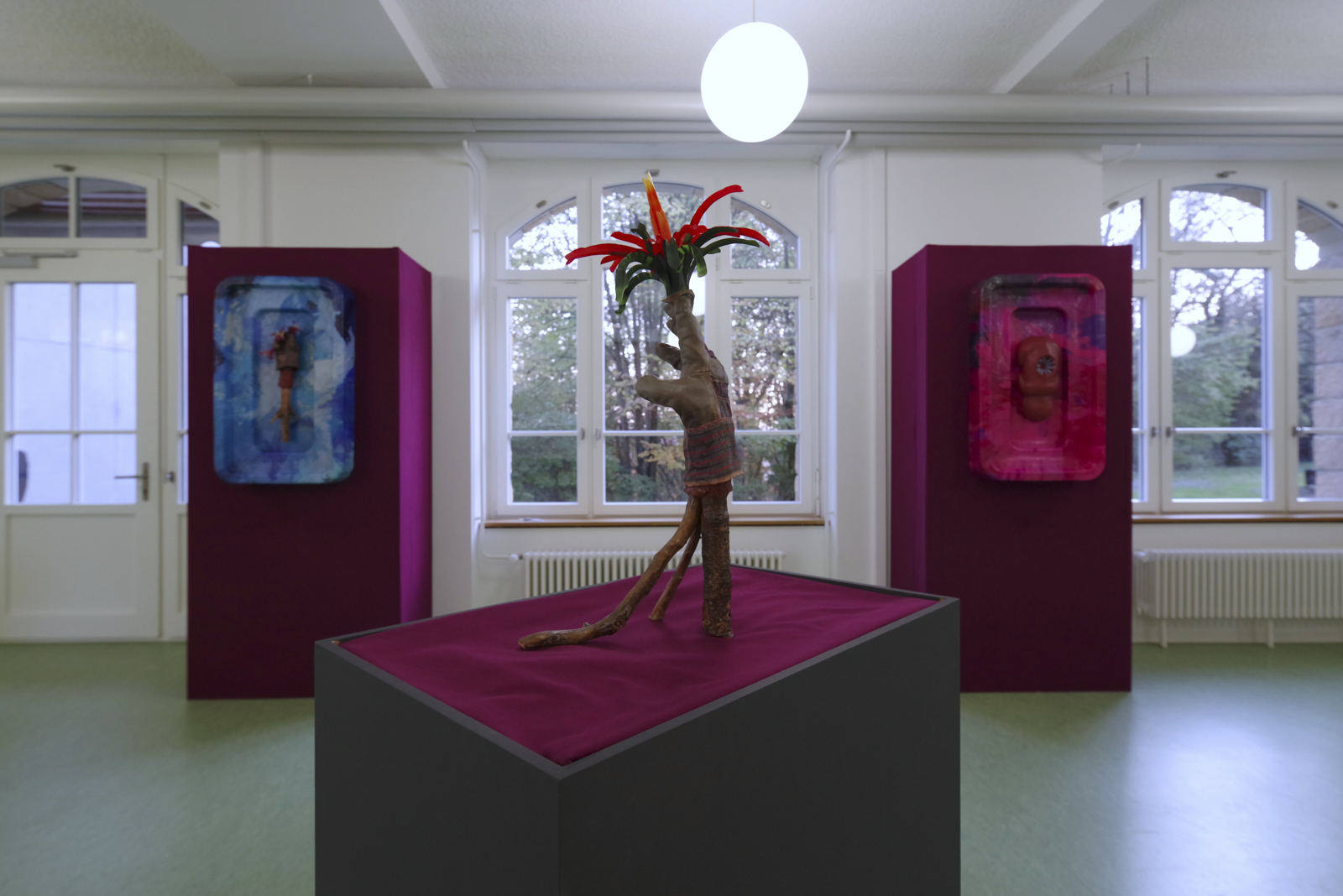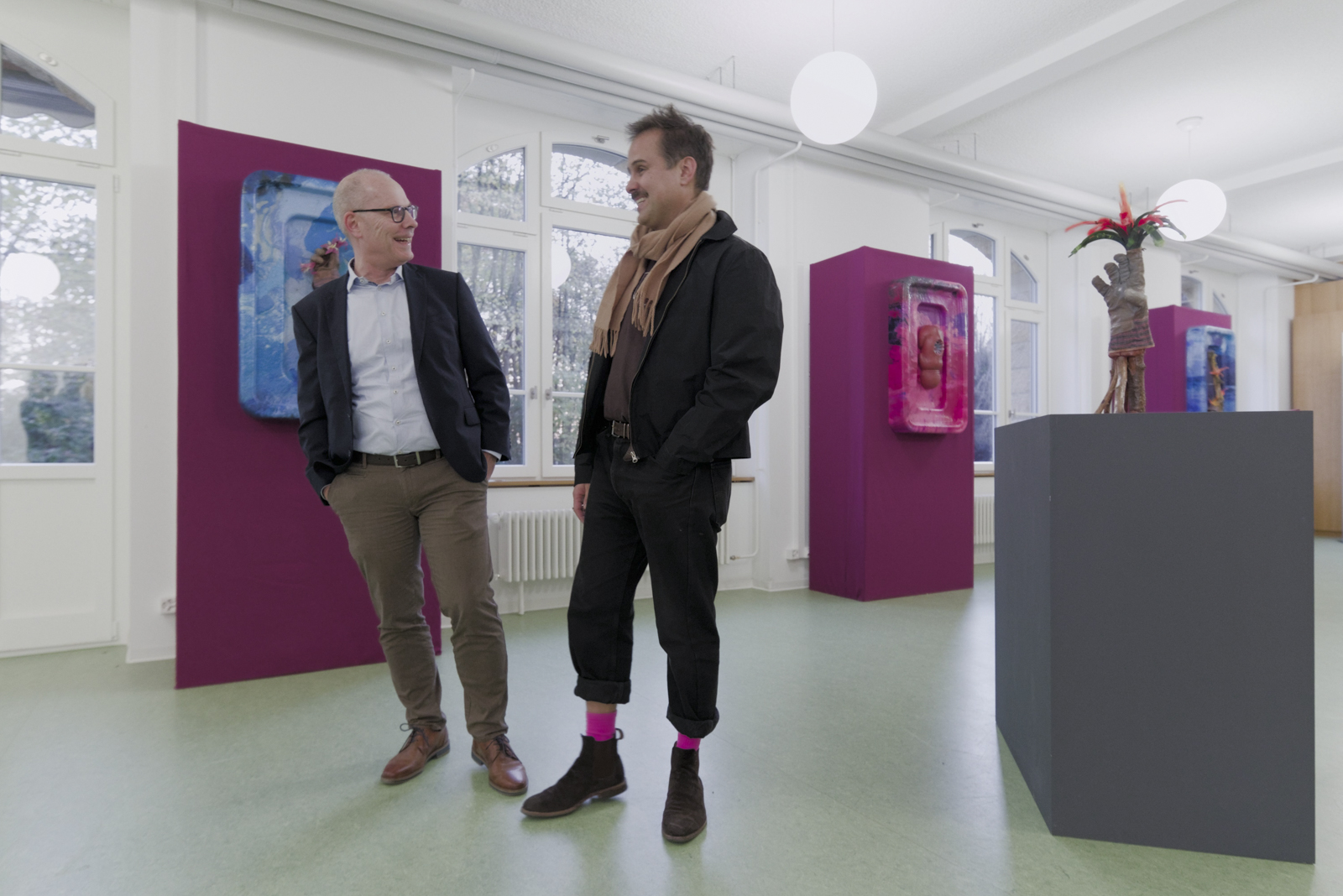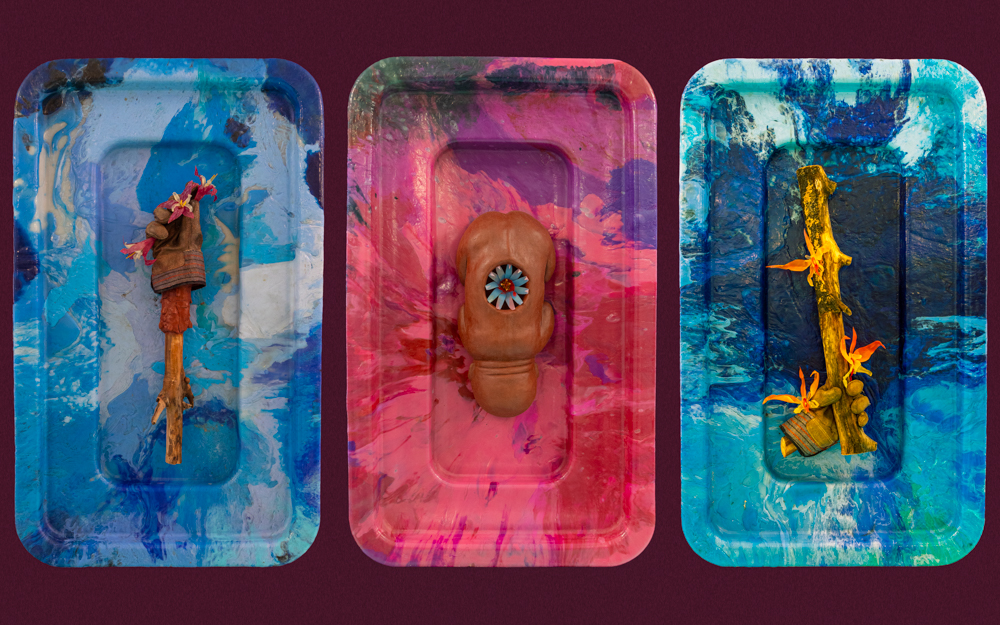- Education
- NanoARTS
NanoARTS : Arts meet Nanoscience
In 2022, the Swiss Arts Council Pro Helvetia and AMI brought three tandems of artists and scientists together for this program with the aim of stimulating exchanges between art, science, technology, and humanities, creating a space for new artistic projects and explorative research practices as part of a transdisciplinary collaboration, NanoARTS. On November 8, 2024, the tandems presented their artworks to the public. If you would like to find out more, please read on.
"PAINTING WITH LIGHT: THE DARKROOM OF NATURE"
The project explored connections and synergies between nanoscience and photography. The goal was to develop new methods of drawing with light using mechano-responsive molecules which become fluorescent when activated by force. The tandem partners worked closely and combined their knowledge of light, optical signals and mechanical processes in both photography and nanoscience.
Claudia Christen [Visual artist]
Trained as a graphic designer at the School of Visual Arts in Biel, Switzerland, Claudia Christen moved to New York City in 1996. In addition to working for major companies as a graphic designer and designing her most iconic work, the NYC Taxi logo in 2008-2010, she also enrolled at New York’s International Center of Photography to further develop her approach to imagery. Since moving back to Bern in 2016 she has been working as a visual artist in photography and film. Christen draws her inspiration from everyday humanity and environmental landscapes. In 2022 she completed her project, “AARE. Water, an artificial medium?”, which examined the human-nature dynamics of river infrastructure using a grant from the canton of Bern. More recently, Christen has turned her focus to scientific innovations and unconventional processes in photography.
Jessica Clough [Professor of Mechanoresponsive Materials]
Jessica Clough is an Assistant Professor at the Adolphe Merkle Institute in Fribourg, Switzerland, where she leads the Mechanoresponsive Materials research group. She completed her undergraduate studies in Natural Sciences at the University of Cambridge in 2012 and obtained her Ph.D. in 2016 for work on mechanoluminescence in polymers, supervised by Prof. Rint Sijbesma at Eindhoven University of Technology. As a postdoctoral researcher with Prof. Joris Sprakel at Wageningen University, she investigated colloidal photonic materials for use as pigments. She moved to Switzerland in 2020 to pursue a Women in Science postdoctoral fellowship from the NCCR Bio-Inspired Materials within the group of Prof. Christoph Weder. In 2022, she was awarded a PRIMA grant from the Swiss National Science Foundation to start her own independent group at the University of Fribourg. Her group’s current research is focused on developing optical reporters of mechanical deformation for polymeric materials at the nanoscale.
"BIGGER PICTURE"
The starting point of this joint investigation is scientific imaging methods used to visualize the micro- and nanostructure of materials. Using these methods, the tandem collected and translated data with the intention of building hypothetical 3D material models through parametric computer-aided design. The goal was to use the artistic design process to reveal and translate digital structures through various media.
Yvo Goette [Designer and Artist]
Yvo Goette is a Swiss designer and artist. Goette's works are characterized by the combination of design, art, biology, technology and material science. His interest lies in the field of perception and the resulting conception of reality. The examination of individual information and perception processing through different technologies and media are a central focus of his artistic thinking. Goette's work is characterized by an explorative and process-oriented approach, in which he acquires knowledge and experience autodidactically and visualizes artistic approaches artistically. Goette completed the design propaedeutic (2015) and subsequently studied design at the Zurich University of the Arts (2017-2019). He founded his own design studio Cosmos Design, which is active in the field of biophilic design. In parallel, he pursued his interest in scientific imaging methods and processes and worked intensively on the further development of his diploma thesis Morpha - a digital microstructure archive for creators.
Alke Fink [Professor of BioNanomaterials]
Alke Fink is a Professor of BioNanomaterials at the Adolphe Merkle Institute (AMI) and a Chemistry Professor at the Chemistry Department of the University of Fribourg, Switzerland. Her academic career has taken her from Germany via Australia and the USA to Switzerland, where she has been a professor at the University of Fribourg since 2010. She is a trained chemist but has spent ten years in Materials Science and Engineering at the EPFL. She loves to make and analyse nanoparticles, and her research has moved from nanomedicine and nano risk assessment to stimuli-responsive cell substrates, microplastics, nano food formulations, or instrument development. Alke has co-created the first AMI start-up, has, together with her co-chair Prof. Barbara Rothen-Rutishauser, created an analytical platform for regulators and industry, has launched a kid’s university in Fribourg, and is getting increasingly involved in coaching and mentoring of young academics.
"MATERIAL CHANGES"
The project proposed to question the term and usage of “sustainability” through a transdisciplinary dialogue between the arts and science. The dialogue revolved around concepts such as technology vs. nature; value-added recycling and reuse, and nanostructures in natural and artificial materials, amongst others. The tandem created objects to document their dialogue, using different artificial materials.
Pedro Wirz [Visual artist]
Pedro Wirz works in sculpture, mixed media, and installation. As a Brazilian-Swiss artist, he is primarily concerned with questions of natural science, arts and crafts, and different knowledge systems. He draws his inspiration from the traditional folklore of the Paraı́ba Valley region in Brazil, where he grew up, from the local mythology and popular and folkloric knowledge. In particular, man's interaction with the environment has increasingly become the focus of his practice in recent years. The result are works, which are at once fantastical and a sobering commentary on our current environmental crisis. Recent solo exhibitions include Diplomatic Immunity, MASI, Lugano (2023), sadnest, Kai Matsumiya, New York (2022), Environmental Hangover, Kunsthalle Basel (2022), Termite Terminators, Marc Selwyn (Los Angeles, 2020), Tooth of a Giant, PHILIPPZOLLINGER, Zurich, (2020), Verwachsen, Galerie Nagel Draxler, Berlin (2019), A Curbing Wall of Debris / Nesting, Centre Culturel Suisse, Paris (2019).
Christoph (Chris) Weder [Professor of Polymer Chemistry and Materials]
Christoph (Chris) Weder is a Professor of Polymer Chemistry and Materials at the Adolphe Merkle Institute (AMI) of the University of Fribourg, Switzerland. His main research interests are the design, synthesis, investigation, and application of functional polymers, particularly stimulus-responsive and bio-inspired materials. Weder was trained in chemistry and materials science at ETH Zurich, where he earned a doctoral degree in 1994. After postdoctoral research at MIT and a Habilitation at ETH, he joined Case Western Reserve University in Cleveland (USA) in 2001 as a Professor of Macromolecular Science and Engineering. In 2009 he moved to the newly established Adolphe Merkle Institute, which he directed from 2010-2022.

